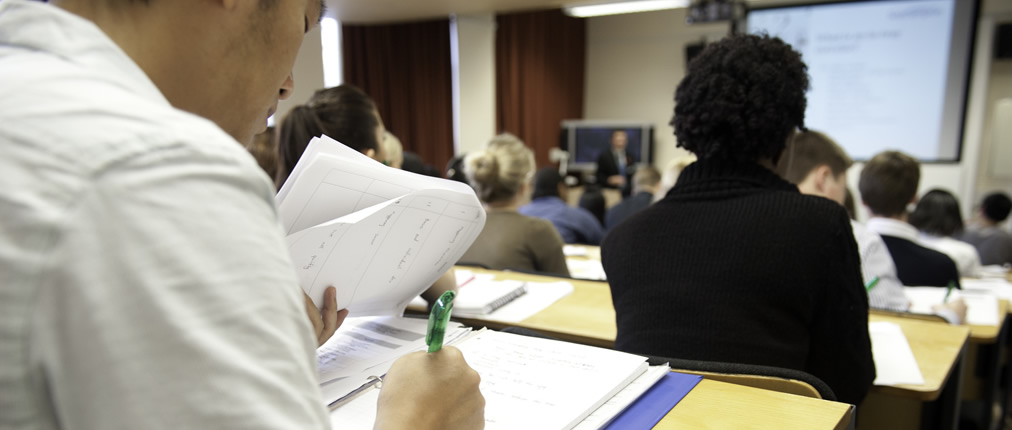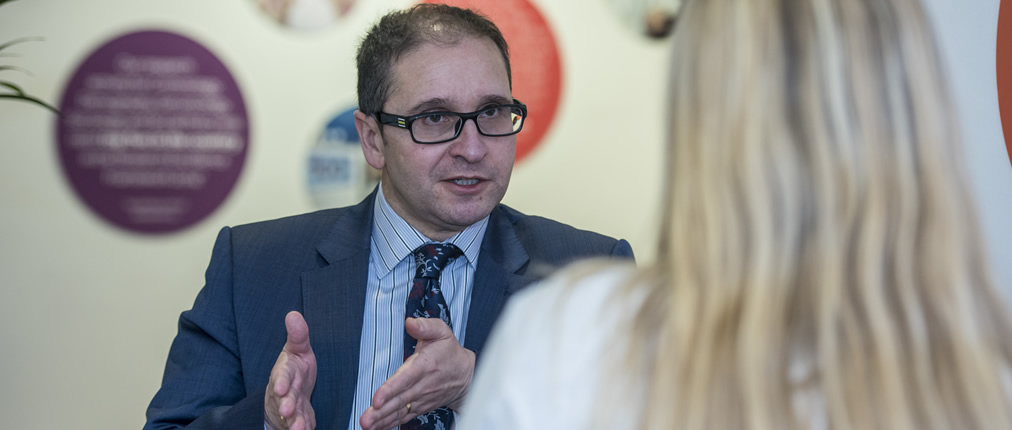Hartley News Online Your alumni and supporter magazine
Southampton Connects Staff talks to Professor Carol Evans, Co-Director of the Centre for Higher Education at Southampton, about her world-leading research and her role in improving the University’s assessment practice.
Carol’s research is into cognitive styles, or how individuals make sense of information, and also on enhancing assessment practice in Higher Education.
She says:
“I am passionate about supporting assessment practice through an understanding of individual differences. My book with a colleague Michael Waring (Waring and Evans, 2015) Understanding Pedagogy: Developing a Critical Approach to Teaching and Learning highlights my approach to development of curriculum including assessment through a personal learning styles pedagogy approach.”
In 2013, Carol published an article called ‘Making sense of assessment feedback in higher education’ in Review of Education Research journal. This is the highest ranked journal in education in the world. It reviews over 460 articles on assessment feedback as part of a funded National Teaching Fellow project on supporting masters students’ transitions through a focus on assessment. Her article remains the second most read in that world-leading journal.
Based on her research on assessment and cognitive styles and her outstanding teaching nationally and internationally, Carol was awarded a Principal Fellowship by the Higher Education Academy in 2013 and became a National Teaching Fellow in 2014, secretary of the Committee of the Association of National Teaching Fellows (CANTF) in 2014, and CANTF’s international officer in 2015. She is also a member of the Higher Education Academy’s Assessment and Feedback Advisory Group.
Enhancing assessment practice is a major concern for all higher education institutions and a key priority for Southampton as highlighted in the Vice-Chancellor’s first all-staff address in January 2016.
Professor Sir Christopher Snowden pointed out that last year’s National Student Survey (NSS) put us 44th in overall satisfaction and 84th in teaching assessment and feedback.
Sir Christopher went on to say that one of our strategic goals is to get into the top 10 in this satisfaction survey. Focusing on teaching assessment and feedback is seen as the way to do this given the considerable potential for improvement in this area. Enhancing our NSS profile will be especially important with the emergence of the Teaching Excellence Framework, which is likely to place considerable emphasis on student engagement and satisfaction metrics such as the NSS.
In October 2015, Carol set up the Researching Assessment Practices Group (RAP). The aim of this initiative is to support colleagues in the development of assessment practice. It will draw specifically on her research on assessment feedback in higher education.
There is no reason why the University of Southampton cannot be world-leading in assessment and feedback practice given the considerable knowledge, expertise, and commitment of colleagues; the potential of our students, and our adoption of a high quality research-informed and collegial approach to enhancing an understanding of assessment practice across the University.
RAP works with support from the Associate Pro Vice-Chancellor Education, Dr Russell Bentley and Pro Vice-Chancellor Education, Professor Alex Neill. Carol outlines the group’s wide-reaching aims:
“Through a focus on assessment and the development of a supportive community of practice it will mean we will be able to enhance what we do; encourage innovation; enable focus on areas that matter; be sustainable in supporting students to self-regulate, and importantly, enable assessment practice to be more manageable for staff to ensure our assessment practice is one of the best in the country and internationally.”
As Russell explains,
This is a part of our focus on innovation across all areas of the curriculum and all aspects of learning and teaching. To realise our ambition of having a learner-centric approach to education, it is essential that we support each other to promote and advance practices in assessment that are deeply rooted in pedagogy.
Carol illustrates what this means in practice:
“We’ll be running workshops across campuses with support from the Institute for Learning Innovation and Development (ILIaD), exploring key issues, for example, the value of focused feedback and how you make processes more efficient.”
“An assessment tool has been created to support colleagues’ analysis of current assessment feedback practice, and we will be working with colleagues to establish assessment priorities as well as revising assessment guidance in the Quality Handbook and associated documents.”
RAP’s work will feed into University initiatives but will also be used nationally and internationally by promoting it through national and international research networks.
Through the RAP network it is possible for all colleagues to get involved at whatever level they wish. They can be on the mailing list; act as a discipline representative; participate in conference and workshop events; contribute case studies of good practice or directly to assessment strategy development; build links with colleagues across HEIs; and get involved in collaborative research.
The next RAP event on peer engagement in assessment is at the National Oceanography Centre on 10 March.
If you would like to know more about the initiative and how to contribute, please contact Carol Evans at c.a.evans@soton.ac.uk
Forthcoming events can be found at: http://www.southampton.ac.uk/iliad/comm-of-practice/sigrap.page?
Useful links:
Evans, C. (2013). Making sense of assessment feedback in higher education. Review of Educational Research.
Waring, M., & Evans, C. (2015). Understanding Pedagogy: Developing a Critical Approach to Teaching and Learning. Abingdon, Oxford, United Kingdom: Routledge.

